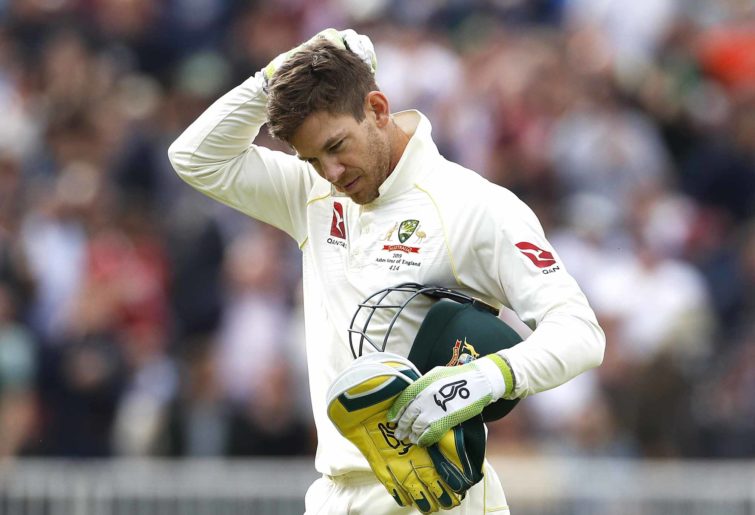World Cup chances up in the air but Smith makes Major call on T20 future, Green dumped despite huge IPL deal
Test great Steve Smith is to play for Washington Freedom in the second season of Major League Cricket as the Australian influence in the…
Satire
Australia currently exists in a crippling educational crisis, one that has plunged us in to the grip of a brain drain beyond the remedy of classroom air conditioners or those laptops from Kevin Rudd we should hopefully be getting sometime soon.
It is a crisis that has spawned a number of serious issues – a nationwide teacher shortage, plummeting NAPLAN results, fat kids – but now a greater offshoot has emerged: we’ve got nobody who can adequately judge if it’s up the guts.
Australia has returned 22 failed DRS referrals out of 24 under Tim Paine, the worst record among OECD nations. This is even poorer when you consider one of the correct calls was one of those days in the box when looking for three reds could actually refer to more Shiraz.
It is an alarming trend that has experts concerned about the nation’s future, with some predicting serious long-term repercussions like a costly error in a major final or, worse, more Shane Watson memes.

(AP Photo/Rui Vieira)
Remedies to the DRS malaise have been broadly debated, with some community leaders even calling for Australia’s referrals to be decided by the state. Unfortunately, while early testing was encouraging, no bureaucrats were able to fully commit as play extended past 2:30pm.
But while Justin Langer has begun calling in DRS experts this week, what about long-term fundamental change? How can we reverse this disturbing correlation between our cricketers and mistakes?
For those unaware, DRS – the decision review system, or “Yeah, why not” – is a technology-based system that was introduced to assist match officials by eradicating dreadfully embarrassing errors for everyone except New Zealand.
As other nations have gradually learnt to use the concept to their advantage, Australia has continued to struggle with grasping nuanced aspects of the process, such as hot spot and Aleem Dar.
Questions have been raised as to why the nation cannot enjoy the virtues of DRS, with experts believing Australian cricket could be suffering an institutionalised cognitive impairment or just a subliminal commitment to support the BCCI at all costs.
But there is good news. Australia’s ineptitude with DRS has thankfully been linked back to the nation’s broken education system.
This not only means we can begin implementing effective strategies for repair, but it’s also now okay to blame your third-grade teacher for Headingley 2019.
It appears that instead of studying a pitch through a set square and spending the requisite five years of full-time study mastering the LBW rule, kids of today are flossing, planking and, worse, studying.
This means generations will eventually waste their lives making the world a better place through intelligence, all the while our uneducated batsmen bring shame to the nation by making more erroneous T-signals with three stumps smouldering on the ground.
This is why it’s time for Australia to overhaul its school curriculum. In line with the nation’s inability to grasp grammar and maths, DRS will now be included under the new three Rs: reading, writing, rocking and rolling.
Making room in the country’s education system to include Snicko sounds dumb, but it would require only the minor tweak of abolishing the creative arts. This syllabus is now redundant because no sculpture ever knew if it smashed the cover off it.
Best of all, not only will teaching DRS basics in school ensure against Ben Stokes witchcraft and Nathan Lyon’s hands, but it will also expose the game to more of what it dearly craves: extra bureaucracy.
Overhauling the education system would involve cricket in a litany of subcommittees, focus panels and Senate estimates hearings, a lengthy governmental process that should be completed in half the time it takes for ball tracking to load.